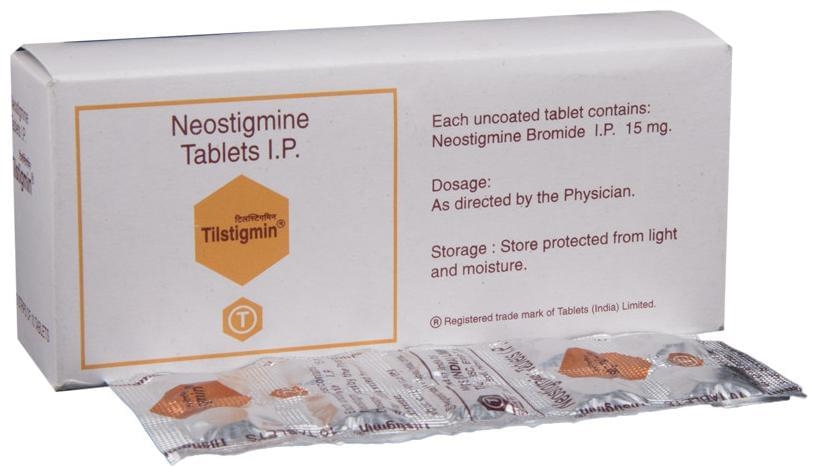Neostigmine
Introduction:
Neostigmine is a rapidly acting anticholinesterase medication, indicated for the reversal of the muscle-relaxing effects of certain prescription medications. It is primarily used when a patient experiences excessive muscle paralysis or weakness, an adverse effect known as over-cholinergic syndrome or anticholinergic intoxication.
Mechanism of Action:
Neostigmine works by inhibiting the action of the enzyme acetylcholinesterase, which is responsible for breaking down acetylcholine (a neurotransmitter) at the neuromuscular junction. By doing so, it amplifies the effects of acetylcholine, leading to an increase in muscle contractions and a reversal of the drug-induced muscle paralysis.
Indications and Usage:
Neostigmine is typically prescribed after the administration of certain muscle-relaxing medications, such as aminoglycoside antibiotics, ganglionic blockers, and others. It is also used in various surgical procedures to reverse muscle relaxation induced by non-depolarizing neuromuscular blocking agents.
Neostigmine is especially useful in emergency situations where rapid action is required to reverse the effects of dangerous medications, such as those causing paralysis of the respiratory muscles, leading to respiratory failure.
Dosage and Administration:
The dosing of Neostigmine depends on several factors, including the patient’s age, weight, and the severity of the muscle paralysis. Typically, the medication is administered either intramuscularly or through intravenous injection. The healthcare provider will closely monitor the patient’s clinical response and adjust the dosage accordingly to achieve the desired effect.
Adverse Effects and Precautions:
Neostigmine might cause side effects such as abdominal cramps, nausea, increased salivation, sweating, rapid heartbeat, and difficulty breathing. It is essential for patients to inform their healthcare provider if they have pre-existing medical conditions, such as bradycardia (slow heart rate), gastrointestinal motility disorders, or a history of peptic ulcers before taking Neostigmine. Pregnant and breastfeeding women should consult their healthcare provider before using the drug.
Conclusion:
Neostigmine is a vital drug in the management of over-cholinergic syndrome or anticholinergic intoxication, causing excessive muscle paralysis or weakness. Its rapid action and effectiveness in reversing the effects of muscle-relaxing medications make it an essential tool for healthcare professionals in emergency situations. However, strict adherence to the prescribed dosage and close monitoring for potential side effects are crucial in ensuring patient safety.

Showing all 9 results
Showing all 9 results


